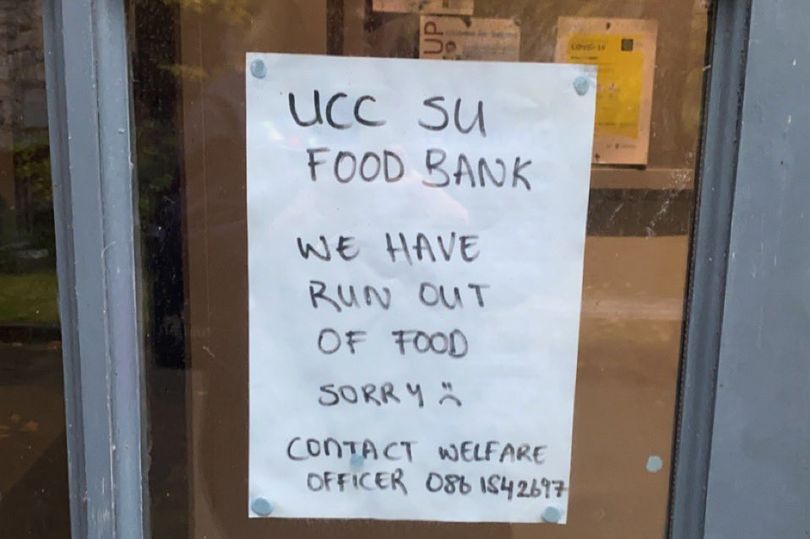University College Cork Students’ Union (UCCSU) has launched a GoFundMe to raise money for its food bank, which was re-launched this week.
Created last night, the fund has raised €9,778, surpassing its goal of €5,000.
The service opened at 5pm yesterday and ran out of food before 6pm, with over 100 students attending.
The GoFundMe description, signed by the union’s executive, said: “UCC Students’ Union relaunched it’s [sic] food bank this week in response to the chronic financial hardship our students are experiencing as a result of the accommodation crisis, rising rents and costs of living associated with being a student.”
The union said: “It was heartbreaking to not have enough for students who came afterwards, to have to turn them away and to see the amount of students living with food insecurity.”
At the time of writing, 323 people had donated to the fund. UCCSU is also taking donations of food and hygiene products.
“We have decided to also set up this gofundme if people would like to make money donations, all of which will be spent on purchasing food and essential products for our food bank to directly support students who need it.”
UCCSU President Asha Woodhouse wrote on Twitter last night: “50 minutes in we’ve run out of food and have had to turn students away. Heartbreaking to not have enough and to see so many students experiencing food insecurity. Is this the @UCC and country we are supposed to be proud of?”
The union first launched its food bank in 2019 as part of its student hardship fund to help students in financial difficulty.
The union said at the time that it was seeking to address the issue of student poverty in a “tangible manner”.
Then-UCCSU Welfare Officer Naoise Crowley told The University Times that there is “a considerable stigma surrounding financial hardship which prevents people from speaking about it, and in some cases, seeking help”.
“We want to do our best to tackle this crisis by taking innovative and practical steps to support our students struggling with the cost of attending college”, he said. “Welfare issues are very often interconnected and there is a long-established link between financial hardship and mental health difficulties.”







